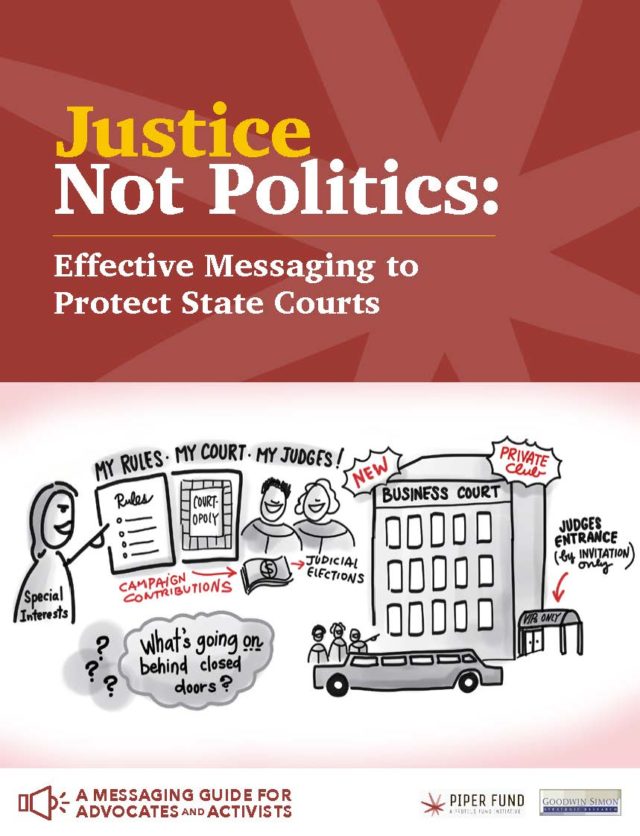 Today, we find American democracy is in a precarious position. People’s trust in the systems that serve as the foundation of our governance—one of the most important indicators of a healthy democracy—is at a dangerously low level. Meanwhile, we find that bad or misguided actors relentlessly seek to erode the trust that remains, telling us we shouldn’t put our faith in systems that are ‘broken’ or ‘rigged.’
Today, we find American democracy is in a precarious position. People’s trust in the systems that serve as the foundation of our governance—one of the most important indicators of a healthy democracy—is at a dangerously low level. Meanwhile, we find that bad or misguided actors relentlessly seek to erode the trust that remains, telling us we shouldn’t put our faith in systems that are ‘broken’ or ‘rigged.’
The complicated reality for those of us advocating to secure the independence of the court system is that we recognize that parts of the system are, in fact, in desperate need of reform. At the same time, we also recognize having broken windows doesn’t mean you burn down your entire house—you fix the windows. That said, communicating this concept—that protecting the independence of courts and improving the court system are not mutually exclusive ideas—can be extremely challenging when faced with opponents who easily lean into fear and uncertainty to sow doubt and distrust.
So, how can we effectively build support for an independent judiciary while also communicating about ways we need to improve the system? The findings and research-based recommendations in this guide shine some promising light on effective messaging that resonates with our audience. The guide also highlights messaging that does not work or, importantly, may inadvertently place us within our opponents’ frame—giving them a strategic advantage in the conversation.
What I find encouraging from the research is that while people’s trust in our foundational systems may shift, the core values they hold—values such as equal access to justice, fairness, impartiality, the ability to have a fair hearing in court and resolve disputes, and the ability to decide cases objectively based on the evidence—have not shifted. This research shows us that our ability to tap into this shared set of values can serve as a powerful point of connection, providing opportunities to calm our audience’s anxieties and fill their information gaps. Also, while this issue may be complex and esoteric in many ways, once our audience engages on the important role of state courts—and the importance and value of judicial independence, separation of powers, and checks and balances—they do want to do something to protect them. The research shows that when messaging is effective and addresses our audience’s concerns, it enables them to be open to considering reforms that improve the courts, rather than measures that would cede their independence and control to other branches of government.
The opposition has spent decades and a tremendous level of resources to research, develop, and hone their communications. It has worked, and because of that we have a lot of catching up to do. I hope this research and this guide help to show that while behind, we are not out—that effective messages, delivered by a mix of messengers representing a wide variety of backgrounds and experiences, can engage our audience in an aspirational vision of what the courts should be, and can be—with their support.
A sincere thank you to our advisory group who provided input and feedback throughout each stage of the research. Their expertise and experience in the field helped to strengthen our research process and to develop this guide to be practical and useful for a broad range of advocates.
Download: Justice Not Politics: Effective Messaging to Protect State Courts